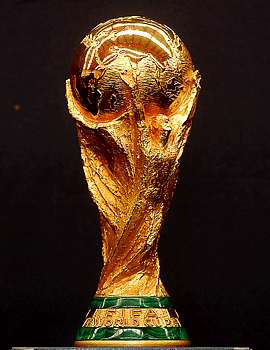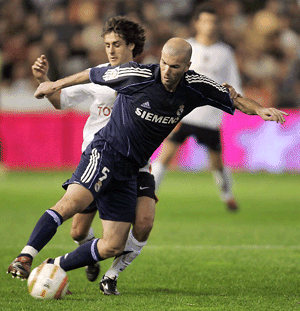World Cup Begins in a Torn Brazil
June 12, 2014
The World Cup Finals, the biggest single-event sports competition in the world, kicked off today in Brazil. The tournament will involve 32 countries whose teams will play 64 games in 12 cities over 32 days. The final match is scheduled for July 13 in Rio de Janeiro. Television viewership of the soccer championship is expected to be the highest in history, surpassing the 3.2 billion people who watched the 2010 games, according to the FIFA, the international governing body of association football. A description of the World Cup as “the planet’s single greatest collective human experience” by sports writer Roger Bennett captures the fervor aroused by the tournament.

The World Cup is the most important international competition in soccer. Every four years national all-star teams from 32 countries compete for the trophy. (© Alfredo Lopez, Jam Media/LatinContent/Getty Images)

Football, or soccer, is known as "the beautiful game." (© Jose Jordan, AFP/Getty Images)
The United States is one of four countries from North and Central America to reach the final round of play in the 2014 tournament. The other qualifying teams are from Costa Rica, Honduras, and Mexico. The United States has qualified for every World Cup since 1990. The U.S. team plays it first match on Monday, June 16, against Ghana.
The 2014 World Cup, the most expensive ever staged, has been highly controversial. Surveys found that more than half of Brazilians–perhaps as many as two out of every three residents–opposed the tournament. Across Brazil, demonstrators have protested the enormous cost of hosting the event–$11 billion–which they claim would have been better spent on hospitals, public housing, and schools. In 2013, an estimated 1 million people joined demonstrations across Brazil, protesting an event that offers no economic advantage to the vast majority of Brazil’s population. Today in Sao Paulo, Brazil’s largest city, police used tear gas to break up a demonstration. Protesters were attempting to block a road leading to the stadium where the opening ceremony took place. Near the stadium, some 3,000 families are camping in a squatter settlement known as the “People’s Cup,” hoping to use the global event as a platform to pressure the government to provide better public services. Elsewhere in the city, riot police used tear gas and rubber truncheons to disperse protesters outside a subway station on the route to the same arena.
Additional World Book articles:


